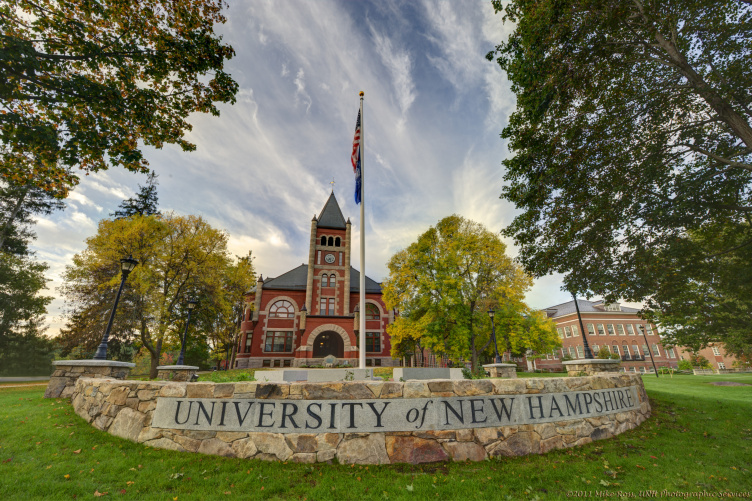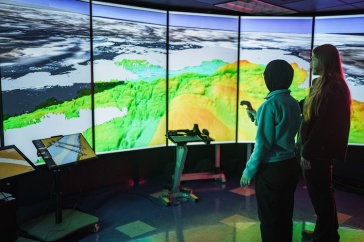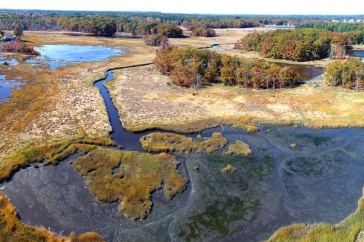
“Universities have departments but the world has problems,” goes the old adage. UNH’s new annual Collaborative Research Excellence (CoRE) initiative, supported by the Office of the Provost and the Office of the Senior Vice Provost for Research (OSVPR), seeks to break down departmental silos to bring interdisciplinary expertise to bear on issues facing our state, region and world. With internal grants to 22 projects, dozens of UNH researchers will reach across disciplinary boundaries to address a range of issues, from aging to the Arctic, head injuries to pain and poverty.
“We were thrilled to receive more applications than we expected for the first round of this annual funding competition,” says Jan Nisbet, senior vice provost for research. “Our faculty members clearly are eager to reach across traditional academic boundaries to address the challenges that face our increasingly complex world.”
Grants went to projects in three categories:
Strengthening Centers provides funding (up to $50,000 for one year, to be matched 1:1 with additional funds) to shape and position existing research centers for success.
- Joan and James Leitzel Center for Mathematics, Science and Engineering Education
- Increasing the Visibility of the Earth Systems Research Center: A New and Improved Center Website
- Center for Social Innovation and Enterprise (CSIE)
Pilot Research Projects seed-funds (up to $25,000 per project for one year) collaborative research projects with strong potential to garner future funding from external sources, and/or with outstanding commercial potential.
- Coupling Geochemistry and ‘omics to Quantify Environmental Controls on the Diversity and Appetite of Rock-Eating Microbes (Julie Bryce and Louis Tisa)
- Treatment to Reduce Head Impacts in Youth Football: Neural and Cognitive Effects (Erik Swartz and Don Robin)
- Exploring Watershed Investment Mechanisms (WIMs) for Sustaining Water Resources across Diverse Socioecological Contexts (Heidi Asbjornsen and Catherine Ashcraft)
- Housing Environment and Food Deprivation: A First Step Toward Understanding Linkages Between Poverty and Pain (Arturo Andrade and Beth Mattingly)
- Real-time Recognition of Older Adult Activities from Motion Primitives (Momotaz Begam and Dain LaRoche)
- A Wireless Acoustic Emission Sensor for Sheet Metal Forming in an Industry 4.0 Environment (Brad Kinsey and Nicholas Kirsch)
- Integrative Approaches for Understanding Structure and Function of Multidomain Enzymes in Photoreceptor Signaling (Harish Vashisth, Feixia Chu, Rick Cote, Krisztina Varga)
- Screening Children and Youth for Social and Emotional Risk Factors in Primary Care Settings: A National Survey of Pediatric and Family Health Care Providers (Lisa Jones and Alyssa Abraham O’Brien)
- Microbial Diversity and the Biotransformation of Anticancer and Carcinogenic Chemicals (Brian Barth and Cheryl Andam)
- Molecularly Imprinted Polymers for Selective Detection of Neurotransmitters Serotonin and Dopamine (Edward Song, W. Rudolf Seitz, and Jeffrey Halperin)
Interdisciplinary Working Groups support groups of faculty (up to $10,000 for projects lasting one year) to convene around research topic areas to build awareness and relationships across disciplines, allow for cross-fertilization of ideas, identify potential collaborative research opportunities, and provide a venue for finding partners.
- NSF-MRSEC Development Working Group (faculty lead: Shawna Hollen, physics)
- Promotion of Early Childhood Coalition (PECC) (faculty lead: Kerry Kazura, human development and family studies)
- UNH Arctic Seminar Series and Workshop (faculty lead: Katherine Duderstadt, Institute for the Study of Earth, Oceans, and Space)
- CRISTaL: Center for Research at the Interface of STEM, Teaching and Learning (faculty lead: Chris Bauer, chemistry)
- The UNH Data Science Interdisciplinary Working Group (faculty lead: Tevfik Aktekin, decision sciences)
- TIGERS: Transformative Investigations of Geospatial, Environmental and Social Sciences (faculty lead: Jeannie Sowers, political science)
- Interdisciplinary Working Group on Environmental Acoustics (faculty lead: Jennifer Miksis-Olds, School of Marine Science and Ocean Engineering)
- Industry 4.0 Interdisciplinary Working Group (faculty lead: Brad Kinsey, mechanical engineering)
- Effective Supports for Children, Youth and Young Adults with Emotional and Behavioral Challenges (faculty lead: JoAnne Malloy, Institute on Disability)
For more information on CoRE, contact Mark Milutinovich, director of large center development.
-
Written By:
Beth Potier | UNH Marketing | beth.potier@unh.edu | 2-1566
















































